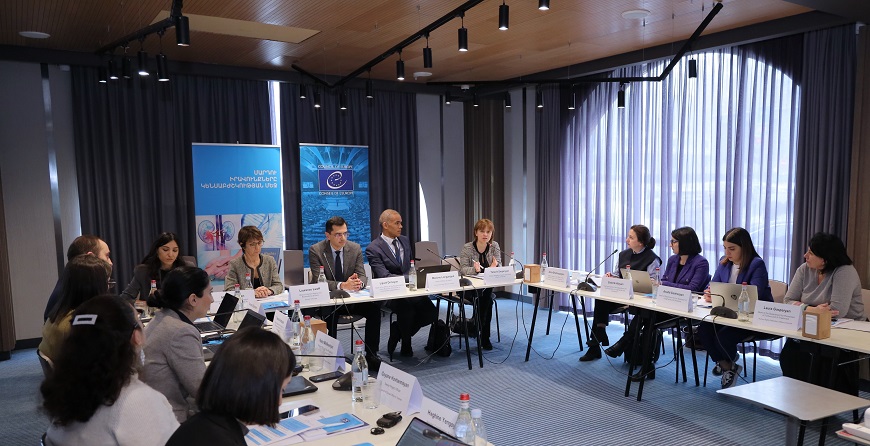The issue of protection of rights of persons with disabilities is given a significant importance by the Council of Europe as the European Convention on Human Rights protects the rights and dignity of all members of the society without any discrimination. Unfortunately, people with disabilities are often among those who are left further behind, especially those with mental health problems, due to stigma that still exist in the society. That is why the protection of rights of persons with mental health issues, that may lead to incapacity to take decisions or take care of yourself, is very actual and important. It is crucial to ensure that any person retain his or her autonomy and decision-making capacity at the largest extend possible.
To discuss the protection issues of the persons with mental health issues recognized as legally incapable, as well as to contribute to the execution of the judgment of the ECtHR case-law “Nikolyan vs. Armenia”, the Council of Europe Office in Yerevan, in close cooperation with the Office of the Representative on International Legal Matters of the Republic of Armenia, organised an expert discussion on “The Rights of Persons being Declared as Legally Incapable as a Result of Mental Health issues”, with participation of relevant national stakeholders, including the Ministry of Health, the Ministry of Labour and Social Affairs, the Ministry of Justice, and the Human Rights Defender’s Office.
The case “Nikolyan v. Armenia” brought before the European Court of Human Rights showed that although certain safeguards were put in place in Armenia to ensure protection of persons with mental incapacities, the Armenian legal framework should be further enhanced to ensure better protection of this group of population, allowing a human-centred approach based on individual characteristics of a person and his or her mental health condition, supporting and empowering the person to understand, consider and communicate decisions on his/her own as much as it is possible. It also includes the obligation of the society to protect people with mental disabilities from any form of discrimination. This means that there is a need to develop and put in place at the national level mechanisms that would allow supported decision-making, and as an interim measure - or a possibility for any intermediate form of limitation of legal capacity, etc.
The discussion aimed at proposing recommendations by international and national consultants of the Council of Europe on the improvement of the legal framework of Armenia with regards to the rights of persons recognized as legally incapable as a result of mental health issues.
The discussion significantly contributed to the social reform agenda of the Government of the Republic of Armenia in the context of the protection of rights of persons with mental health issues and provided an effective platform for a discussion and exchange of views between respective state institutions on the revision of the institute of legal incapacity according to international standards.
The expert discussion was organised by the Council of Europe Cooperation Project on “Protection of Human Rights in Biomedicine II” implemented within the framework of the Council of Europe Action Plan for Armenia 2023-2026.








